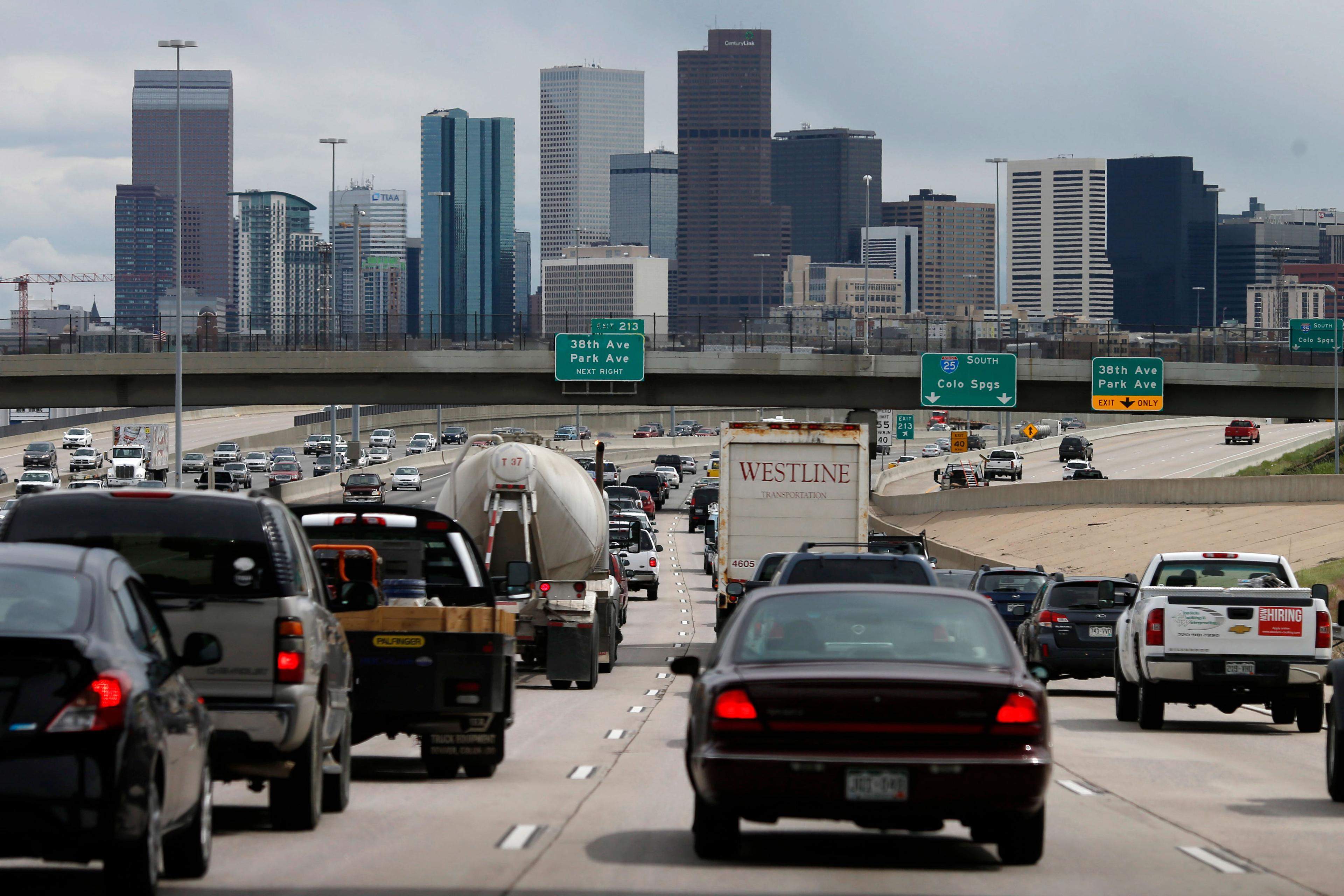
President Donald Trump says his administration wants to revoke California’s authority to set its own vehicle emission standards that are stricter than those set by the federal government. The move could upset states’ years-long legislative push for automakers to adopt more fuel-efficient cars.
Under the Federal Clean Air Act, California is allowed to seek a waiver from the Environmental Protection Agency to set its own vehicle emission standards because of the state’s history with poor air quality. Other states are allowed to adopt California’s standards, which Colorado did in 2018 and in 2019.
Under former Gov. John Hickenlooper, Colorado took on California’s low emission vehicle (LEV) standards for new light-duty and medium-duty cars and trucks sold in Colorado beginning in the 2022 model year. Passenger cars are required to reach 54.5 miles per gallon by 2026.
The District of Columbia and 12 other states have also adopted California’s rules. According to Politico, those states make up 36 percent of U.S. auto sales.
Right now, the federal emission standards match that of California’s. But the Trump administration is working to roll back rules for vehicle model years 2021 through 2026.
Colorado’s Air Quality Control Commission approved the adoption of Colorado Low Emission Automobile Regulation, or CLEAR, in 2018 in anticipation of the rollback.
Last month, the commission also adopted California’s Zero-Emission Vehicle Program. Automakers will now be required to sell electric vehicles. The standards mandate that zero- or low-emission vehicles should account for almost 5 percent of the state’s sales by 2023. The vote follows Gov. Jared Polis’ executive order to get more electric cars on Colorado roads.
In a tweet, Trump said his move to revoke California’s authority to set its own standards would result in less expensive and safer cars. He insisted that new cars would be cleaner, even as they burn more gasoline than they would have under Obama-era fuel efficiency standards, weakening a key effort to slow climate change.
If Trump is successful, it means Colorado would likely have to fall back in line with the federal emission standards.
Polis said Trump's decision is a backward move on fighting climate change. He said he's looking into legal and legislative options to fight the decision.
“Any avenue that's available to us for Colorado to have the flexibility to have cleaner air and lead on climate, we are aggressively pursuing," he said.
Polis thinks California should continue to have the right to set its own emission standards.
“Many states have been doing this kind of thing for a number of years. And in the absence of federal action, there’s really no excuse to paralyze the states. So let the states continue to move forward with renewable energy, with cleaner air and clean water,” Polis said.
Tim Jackson, president and CEO of Colorado Automobile Dealers Association said Trump’s decision is “a big day for Americans and Coloradans.”
“It puts us back on track and in sync with the nation as a whole, and as an industry. I think we couldn’t be happier,” Jackson said.
Jackson said it makes a lot more sense for there to be a national fuel economy standard. He said having multiple standards increases the costs of vehicles for consumers, and that it can price some people out of the new cleaner and fuel efficient vehicles “that we need to get on the roads.”
“Look at what the consumers want and need and what they're buying,” Jackson said. “Don't complicate that by increasing the price on their next new car. Because you know what, they'll stay on their older, higher emitting cars and that will be worse on the environment than the national standard.”
California officials and environmental groups said they’ve planned legal action. Colorado’s Attorney General Phil Weiser said he’s working with other affected states, and he expects that they’ll soon be in court.
“Our argument is going to be: This unprecedented action is not justified by the law,” Weiser said. “It undermines states’ ability to do their work in a way that hurts because they have relied on a waiver that isn't set to expire until 2025. I don't believe the federal government can justify what they're doing right now.”
Weiser thinks states should have some discretion “to protect their populations.”
“We in Colorado, we've got real air quality concerns and we're committed to addressing climate change. The flexibility that we have under this waiver is really important to us, and I'm going to fight for it,” he said.









